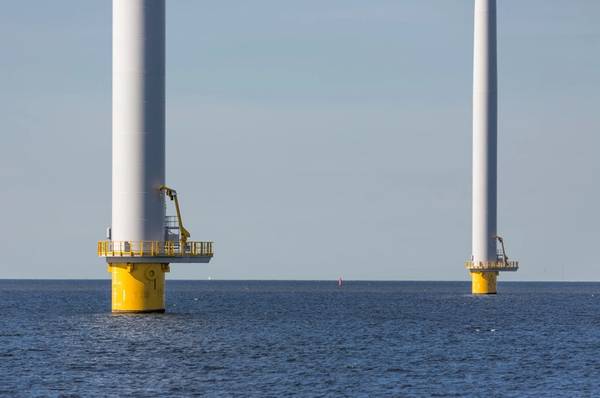
Carbon Trust said Monday that a joint project was underway to examine the impact of increased monopile size on structural stability.
The project, called the Verification of Buckling Assessment and Behaviour in Large Monopiles (VERBATIM) project is a €3 million joint industry initiative, due to be completed by early 2023.
"Currently, the predominant substructure for offshore wind turbines is the monopile foundation. As turbines continue to get bigger, the supporting monopiles become larger in size with diameters beyond 10m and lengths over 60m," Carbon Trust said.
According to Carbon Trust, these large monopiles have a higher risk of buckling below the seabed as the impact hammers used for installation and the forces exerted on the monopile have increased, and to mitigate this potential risk, the industry has adopted greater wall thickness.
"Increasing understanding of how monopiles behave during installation, and the potential defects that may reduce the lifetime of an offshore wind asset, could result in reduced wall thickness allowing safe, optimized structures, whilst also lowering costs," Carbon Trust added.
Developers have to ensure that a monopile can be driven into the seabed without creating any structural defects. To date, current design practices have ensured successful pile installation without pile-tip buckling or refusal, Carbon Trust said.
As monopiles become larger, the development of an enhanced design procedure to deliver safe and cost-effective foundations becomes increasingly important. Pile buckling has to be prevented as a key priority, using economic and time-efficient methods, Carbon Trust said.
With majority funding from the German Federal Ministry of Economics and Energy (BMWi), the project is part of the 7th Energy Research Programme of the German Federal Government, administrated by Projektträger Jülich (PTJ).
The VERBATIM project further benefits from technical and financial industry support provided by Carbon Trust's Offshore Wind Accelerator partners: EnBW, Equinor, RWE, Ørsted, Scottish Power Renewables, Shell and Vattenfall.
The project is being conducted by BAM, German’s Federal Institute for Materials Research and Testing, the Technical University of Berlin and JBO with support from the Carbon Trust, bringing together a range of experience and expertise in mathematical modeling, scale laboratory testing, large-scale field testing and project management.
VERBATIM is investigating potential pile-tip buckling phenomena during installation and buckling instabilities of the embedded pile near the mud-line.
The objectives are to conduct analysis of conditions for pile buckling; develop and validate a Finite Element (FE) model and benchmarking study; develop a design procedure for pile embedment and stability checks; optimise pile design; consider economic and ecological aspects; and develop technical design rules for piles.
BAM’s project coordinator, Dr. Matthias Baessler said:: "As turbine size and water depths increase, the dimensions of monopile foundations continue to grow and we are now dealing with diameters of 10m or more. To install them safely and cost-efficiently we need verified calculation models. Therefore, in VERBATIM we are specifically investigating the conditions for pile buckling.”
The Carbon Trust’s project manager for VERBATIM, Dr James Sinfield added: “The VERBATIM project comes at an important time for the offshore wind industry. With monopiles becoming ever larger, we need to ensure that turbines are installed on solid foundations; the involvement of the Offshore Wind Accelerator partners in this project will ensure that the impact of the results are maximized and that new guidelines and best practices will be implemented quickly.”